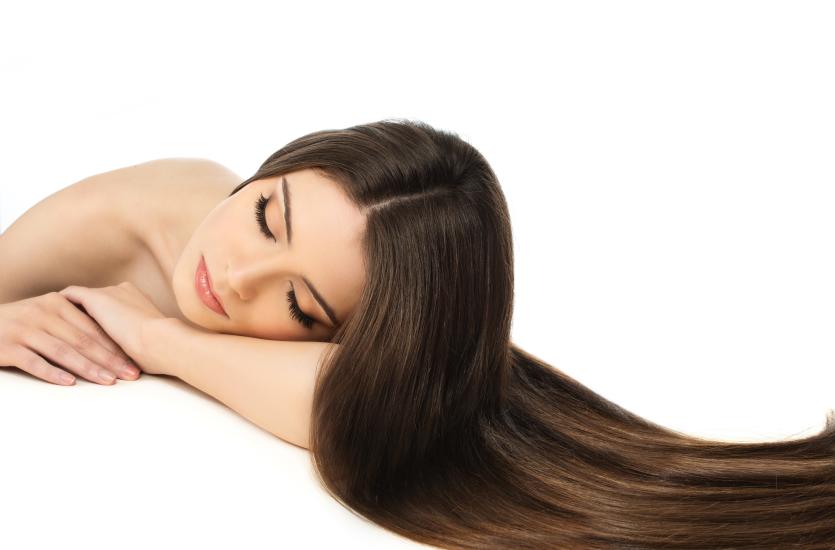Excessive hair loss is frequently associated with baldness but alopecia areata isn’t the only reason of losing hair. There are many reasons why hair gets thinner. Fortunately, there are also many ways to cope with this issue. Therefore, if you notice more and more hair being left on your comb – stop ‘tearing your hair out’ but learn which of the following causes affect you.

1. Hair care mistakes and hair loss
Sadly, these two are still the most common causes of the excessive hair loss problem. Improper care depends on treating hair with mismatching cosmetics, which bring more harm than good, disturb sebum production, act comedogenic, dehydrate hair or cause protein overload which leaves strands matte and brittle. One of the reasons why hair is treated inappropriately is us being unaware of the strands’ porosity level and negligence of their factual needs. Frequent colouring or lightening up, exposing hair to hot air generated by a blow-dryer, flat iron use or rubbing hair against towel also contribute to damages, weakening and encourages excessive hair loss.
2. Stress and hair loss
Stressful situations cause (intensify) prolactin production which encourages excessive hair loss. In order to lower stress level, it’s worth reaching for relaxing herbs (Melissa) or herbal pills that facilitate calming down. Moreover, it’s a good idea to learn the art of relaxing yourself and, right after waking up, perform a few series of slow indrawn breaths through the nose and exhale it through the mouth. Such exercises, as any other form of activity stimulate our body to produce endorphins, which are also known as the hormones of happiness.
3. Vitamin shortage (unbalanced diet) and hair loss
Everything we eat affects condition of our hair and skin. An unbalanced diet and vitamin deficiency are the most common causes of worsening hair condition. For that reason, always remember to consume appropriate amount of vegetables, fruit and EFA (Essential Fatty Acids). Which vitamins are vital for hair in particular? All that belong to B-group, A, E, C and D3. Moreover, your diet shouldn’t lack iron, iodine, zinc and silica.
4. Diseases (especially thyroid gland disorders) and hair loss
If you notice your hair getting thinner and you aren’t able to find the cause, it’s suggested running some blood tests focusing either on hyper- or hypo-activity of thyroid gland. In the case of hypo-activity, hair becomes thin and dry so it falls out excessively. When it comes to hyper-activity, hair is affected by so-called alopecia totalis or alopecia areata.
5. Menopause and hair loss
During menopause it’s the entire hormonal system that gets affected. This results in melanin and collagen reduction. Also, hair bulbs get weakened and skin that holds hair bulbs gets flabby. As a consequence, the state of hair is worsened and this leads to excessive hair loss. After a while strands regenerate but, unfortunately, the level of melanin doesn’t increase so hair loses its volume. Therefore, during this period, it’s worth reaching for natural oils and apply them to hair so as to strengthen hair bulbs and slightly slow down the decrease of melanin level.
6. Rapid body mass loss and hair loss
A strict and weight-reducing diet does help you lose some pounds but, unfortunately, there is the price to pay for that. In most cases, these are split nails, weakened and thinning hair and, frequently, dehydrated complexion that loses its suppleness and radiance. Therefore, it’s so crucial to nourish hair appropriately and have hair needs in head. For example, you can reach for natural hair oils.
7. Birth-giving and hair loss
Once a woman delivers a baby, the level of oestrogen in her body drastically decreases. Fortunately, in this case hair loss is just a temporary state and strands regain their past condition and from fairly quickly.
8. Seasonal hair loss
As it isn’t hard to guess, seasonal hair loss is strictly connected with seasonal changes and hormone fluctuations that our organism undergoes in order to get ready for the upcoming spring or autumn. So as to make seasonal hair loss less severe, it’s advised to visit a hairdresser to get hair nourished professionally (e.g. keratin treatment). Also, it’s worth reaching for a good oil that combats hair loss. Bear in mind that hair requires various forms of conditioning, often corresponding to a season. Therefore, it’s a good idea to once in a while change shampoos and conditioners.
9. Cigarette smoking and hair loss
Tobacco smoke irretrievably damages our body cells and slows down their division. Because of that our skin loses suppleness and elasticity (level of collagen is drastically reduced) but that’s not all. Hair bulbs shrink and the flabby skin isn’t able to hold them in follicles. As a consequence, hair falls out excessively.







Leave a Reply